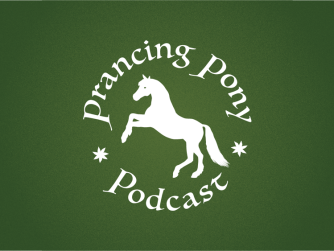Men arrive in Beleriand in Chapter 17 of The Silmarillion, and Middle-earth will never be the same. The Elves’ reaction to the newcomers varies, but Morgoth’s goal is clear: to keep the two races from forming an alliance. We introduce the Three Houses of the Edain, discuss one of Tolkien’s great mythological puns, and expose the terrible manners of string instruments.
Listen to the episode here, on YouTube, or in the player below:
Subscribe to the podcast via:
- iTunes (for iOS users)
- Subscribe on Android
- Stitcher
- RSS Feed
Comments or questions for Barliman’s Bag:
- Visit us at Facebook or Twitter
- Comment on this blog post
- Email theprancingponypodcast (at) gmail (dot) com.
Recommended Reading:



So here I am on December 21st, driving among hordes of Christmas shoppers, listening to a podcast about some people in the East who see a light in the sky and follow it westward…
Nice timing, y’all!
Ha! Okay, that was an accident, but a lucky one.
Just got to finish listening to this one, guys. (been a very busy month.) One thing I wanted to mention about Finrod’s first encounter with Men — what the Men are experiencing when they wake up to find Finrod singing is what Tolkien would call a Faërian Drama — OFS ¶ 74
“Now “Faërian Drama”—those plays which according to abundant records the elves have often presented to men—can produce Fantasy with a realism and immediacy beyond the compass of any human mechanism. As a result their usual effect (upon a man) is to go beyond Secondary Belief. If you are present at a Faërian drama you yourself are, or think that you are, bodily inside its Secondary World. The experience may be very similar to Dreaming and has (it would seem) sometimes (by men) been confounded with it. But in Faërian drama you are in a dream that some other mind is weaving, and the knowledge of that alarming fact may slip from your grasp. To experience directly a Secondary World: the potion is too strong, and you give to it Primary Belief, however marvellous the events. You are deluded—whether that is the intention of the elves (always or at any time) is another question. They at any rate are not themselves deluded. This is for them a form of Art, and distinct from Wizardry or Magic, properly so called. They do not live in it, though they can, perhaps, afford to spend more time at it than human artists can. The Primary World, Reality, of elves and men is the same, if differently valued and perceived.”
In addition to the encounter with Gildor, which you mentioned, there’s also Frodo’s experience in Rivendell, where he seems to be dreaming of Valinor, in the singing contest of Finrod and Sauron, and in Appendix A, when Aragorn meets Arwen for the first time, a moment he may be reliving when they first reach Cerin Amroth. it’s also possible that much of what the hobbits experience when Bombadil is telling them stories about ancient days is the same thing.
Very interesting, Tom. Thanks. I remember the mention of Faërian Drama in OFS, but I never made the connection to any of those instances in the legendarium. To be honest, I’ve always struggled to understand exactly what Tolkien was talking about with that term.
So then what do you make of his comment that “according to abundant records the elves have often presented [those plays] to men”? It strikes me as a joking reference to something like A Midsummer Night’s Dream to a knowing audience. Is there a literary tradition of Faërian Drama that you’re familiar with, beyond Shakespeare?
I think he is probably having us on, but I’m not a 100 percent sure. He may have something in mind, but he nowhere elaborates. Flieger and Anderson don’t know what he’s referring to either. At some point an article that I wrote with several others on those moments in LotR where we think someone is experiencing Faërian Drama is supposed to be coming out in a festschrift for Flieger, but the editor of the book hasn’t been very communicative, which is a bit frustrating.
I’m sure it is. I’d love to know when the book is published, though. Let me know if you hear anything about that.